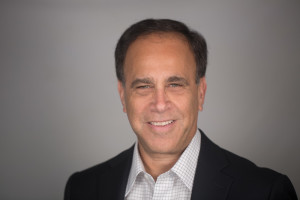Dental Care Alliance supports affiliated dentists’ focus on patient care.

Trying to compare today’s dental industry to the market that existed 25 years ago is a matter of apples and oranges, as they say. Increased regulation, lightning-speed advances in technology, economic constraints and evolving doctor – and patient – demographics have drastically changed the playing field for practitioners. Yet, the mission of dental service organizations, such as Dental Care Alliance (DCA), has remained much the same: Provide dental practices with the support they need to stay focused on what they do best – provide top-notch patient care.
Indeed, the market has changed quite a bit, says Mitch Olan, CEO, Dental Care Alliance. But DCA’s mission to provide back-office support, permitting dentists to focus on clinical care, has not. “Our motto has always been, ‘We take care of the business so that you can take care of your patients,’” he says – a philosophy that dates back to the founding of DCA by Steve Matzkin, DDS.
A dentist of vision
The longer he practiced dentistry, the more Matzkin realized the challenges dentists faced managing their own practice, Olan explains. After all, they were educated and trained clinicians, but few – particularly 20 years ago – had any formal business training. So, long before the term dental service organization was coined, in 1991, Matzkin left his dental practice to start a dental practice management entity. “There was no formal name for such an organization back then,” Olan explains. But, Matzkin was a progressive thinker, he notes. “Steve was a dentist with great business sense, committed to helping other dentists run their practice more efficiently. Today that support is needed more than ever as the challenges of running a dental practice have become even more complex.
“Prior to joining DCA, I worked with an orthodontic appliance manufacturer for 10 years,” Olan continues. When he joined DCA in 1994, the goal was to marry Olan’s marketing and operations experience with Matzkin’s background running dental practices. At that time, DCA had four affiliated locations – a number they hoped would steadily increase. “Our goal was to help our affiliated dentists expand their practice by supporting their office/management needs, so that they could focus on the clinical side,” he says. “We saw dentists making business decisions that were detrimental to their success. We would often hear them tell us they just wanted to practice dentistry.”
Today, DCA is stronger than ever. “We currently support over 500 dentists in 240 practices throughout the eastern United States,” says Olan. They plan to continue to expand organically, as well as through new affiliations. “We haven’t changed the industry as much as we’ve addressed the changes within the industry,” he adds. “DCA has continued to evolve for over 25 years to better meet the needs of the dental profession.”
A league of their own
In Olan’s experience, supporting the back office of a dental practice, regardless of its size or market niche, is similar from one practice to the next. At the same time, “we respect the individuality of our affiliated practices, which are built around the doctors,” he says. “We work with a range of practices, including high-end, fee-for-service, insurance based, multi-specialty, multi-provider and urban. We can support all types of dental practices regardless of how they’re positioned within the community.”
As such, DCA strikes a balance between consistency and variance throughout its affiliations. “It’s important to have the same patient management system in affiliated practices,” says Olan. “In addition, affiliated locations benefit from marketing, accounting/finance, human resources, facility management, operations and IT support.”
To keep doctors current on continual changes in technology, regulations and clinical innovations, DCA offers a wide menu of educational services and programs. “We bring continuing education to our affiliated providers,” says Olan. This includes sharing best practices between locations, as well as engaging speakers and programs with specific expertise.
DCA also provides insurance contract negotiations and a central contact center to ensure new patient calls do not go to voice mail, says Olan. “Between 30-40 percent of calls to a dental practice go to voice mail, and when that happens, many times a new patient will call another practice to make an appointment. We also place a chat feature on affiliated practice websites, allowing prospective patients to get their questions answered online in real-time.”
Continued growth
DCA’s model is working well, says Olan – so much so that the organization has an aggressive growth plan in place. “We plan to continue growing, both organically and through affiliation,” he says. “We constantly get calls from doctors looking to affiliate with us. They recognize the benefits of our support model embracing various types of practices, as DCA is not a one-size-fits-all service organization.”
As dentists today continue to negotiate a rapidly changing industry, DCA plans to continue to grow its network of supported practices, thereby allowing dentists to focus on providing great patient care. “Between new regulations, a slow growth economy and changing graduate demographics and debt, it is more difficult than ever to open or run a successful dental practice,” Olan says. “We have worked with doctors who have left a DCA-affiliated office, purchased their own practice and then returned to us after seeing how difficult it is to manage. Dentists can’t always think about the business side of their practice.” And, that’s where DCA steps in.

